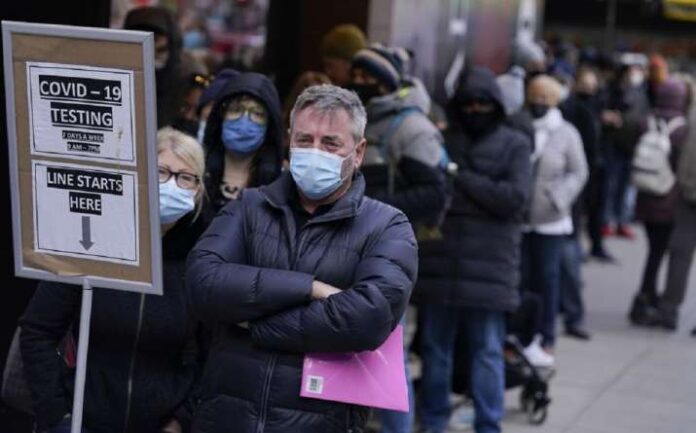
| Translate This News In |
|---|
Scientists have cautioned that the novel coronavirus’s Omicron form will not be the last to cause concern around the world. Every infection gives the virus a chance to mutate, and omicron has an advantage over its predecessors in that it spreads far quicker while being born on a world with a patchwork of vaccine and prior sickness immunity. This means that the virus will be able to spread to more people.
Experts are unsure what the next variants will look like or how they will affect the pandemic, but they say there is no guarantee that the omicron sequels will produce milder sickness or that existing vaccinations will protect against them.
They recommend that people get vaccinated as soon as possible, while the current vaccines are still effective.
Since its discovery in mid-November, omicron has spread like wildfire around the globe. According to studies, the variant is at least twice as contagious as delta and four times as contagious as the original virus.
Omicron is more likely than delta to reinfect those who have already had COVID-19 and to create “breakthrough infections” in people who have been vaccinated while simultaneously attacking the unvaccinated. For the week of January 3-9, the World Health Organization reported a record 15 million new COVID-19 cases, up 55% from the previous week.
The ease with which the variety spreads raises the chances that the virus would infect and persist within people with weakened immune systems, allowing it more time to acquire strong mutations, in addition to keeping comparatively healthy people out of work and school.
“The lengthier, persistent infections appear to be the most likely breeding grounds for novel variations,” said Dr. Stuart Campbell Ray of Johns Hopkins University, an infectious disease expert.
“You’re only going to create the potential for that to happen if you have a very widespread infection.”
Because omicron looks to produce less severe disease than delta, scientists are hopeful that it is the start of a trend that will eventually make the virus milder, similar to a normal cold.
Experts say it’s a possibility because viruses don’t propagate well if their hosts are killed soon. Viruses, on the other hand, do not always become less lethal as time passes.
There are numerous paths that evolution could take. Animals may be able to incubate new variations and release them. Pet dogs and cats, deer, and farm-raised mink are just a few of the creatures that could become infected with the virus, which could mutate and spread to humans.
Another possibility is that if both omicron and delta are circulating, people may contract double infections, resulting in “Frankenvariants,” or hybrids having traits of both types, as Ray describes them.
Scientists say it’s still difficult to predict which variants will take off based on genetic traits when new variants emerge. Omicron, for example, contains roughly 30 changes in the spike protein that allows it to connect to human cells, compared to previous forms. However, the so-called IHU variation, which was discovered in France and is being tracked by the WHO, has 46 mutations and does not appear to have spread widely.
While her state has one of the highest COVID-19 case rates in the US, Anne Thomas, a 64-year-old IT analyst in Westerly, Rhode Island, said she’s completely vaccinated and boosted and also tries to be safe by largely staying at home.
“I have no doubt that these viruses will continue to change, and that we will be dealing with this for a long time,” she said.
Vaccines, Ray said, are like armour for humans, slowing but not totally stopping viral proliferation. “Anything that slows down transmission can have a big impact” on a virus that spreads exponentially, he said. Furthermore, when persons who have been vaccinated become ill, Ray claims that their symptoms are usually milder and pass faster, allowing less time for hazardous variations to emerge.
As long as worldwide vaccination rates are so low, experts believe the virus will not become endemic like the flu. Tedros Adhanom Ghebreyesus, the Director-General of the World Health Organization, recently stated that eradicating global vaccination disparity is critical to safeguarding people from future variations, including those that may be entirely resistant to today’s injections.
Meanwhile, new varieties are unavoidable, according to Louis Mansky, head of the University of Minnesota’s Institute for Molecular Virology.
“The virus is still kind of in control of what’s going on,” he said, citing the large number of unvaccinated persons.

















